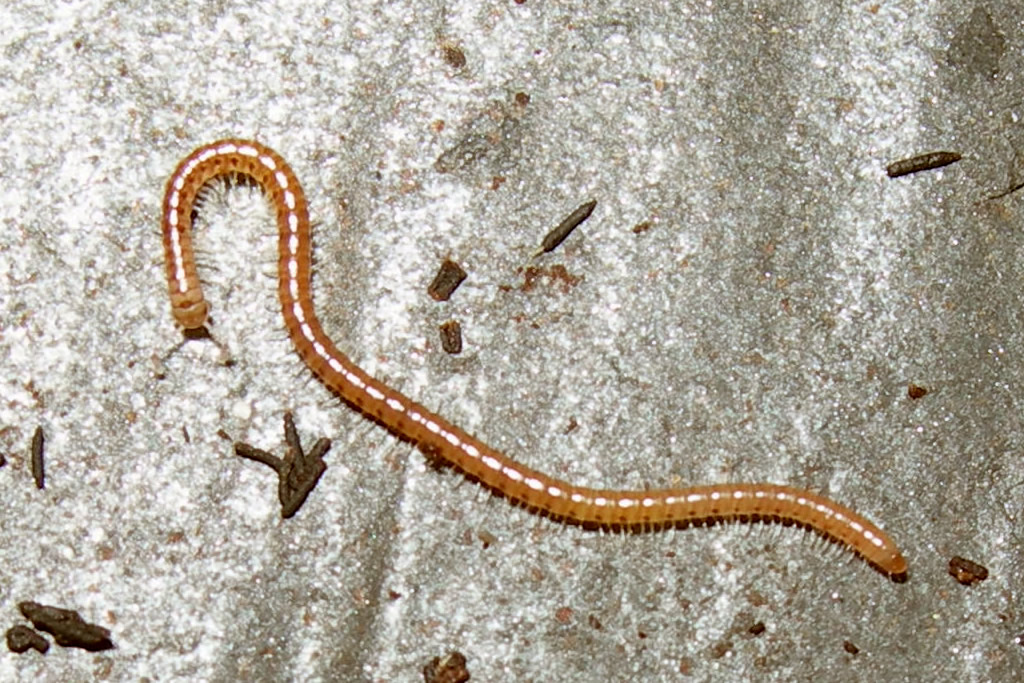Thalassisobates littoralis (Silvestri, 1903)
Status:
- GB IUCN status: Least Concern
- GB rarity status: Nationally Rare
ID Difficulty
Identification
A slender species, usually less than 0.7 mm in width, with conspicuous setae on the body rings and eyes comprising a triangular patch. It’s association with the strandline on shingle beaches, is quite characteristic.
Confusion is possible with the Julid Cylindroiulus latestriatus, which shares this coastal habitat, but C. latestriatus is a much more robust millipede typically at least 0.8 mm in width and shorter in length.
Distribution
This species has been collected from between the tide marks at a scattering of coastal locations around Britain and Ireland. Harding (1985) mentioned a record from Blakeney Point on the Norfolk coast where it was refound in 2021.
With the exception of a single record from Sweden, all other European records of this species are from the western Mediterranean (Kime, 1990a). Enghoff (1987) reports its introduction to North America leading Kime (1999) to question whether it has also been introduced to Britain and Ireland from the Mediterranean.
Habitat
Analysis of the recording scheme habitat data suggests a strong association with maritime habitats as would be expected for the only truly littoral millipede found in Britain and Ireland. It appears to be associated with shingle or rocky coasts (Kime, 1999) but has not been reported from the major shingle formations of East Anglia and the south coast of England (excepting Slapton Ley).
Phenology
Details of the life history of this species have still to be determined but adults have been collected in April, June and August. It can be difficult to collect this millipede by hand even at sites where it is known to occur. Some workers have had success using pitfall traps in shingle (Harding, 1985) but this technique has failed to produce specimens in apparently suitable locations at Orford Ness, Suffolk and Dungeness, Kent.
This updated species account is based on Lee (2006).
Links
MilliBase - Global catalogue of Millipedes: https://millibase.org/aphia.php?p=taxdetails&id=151175







